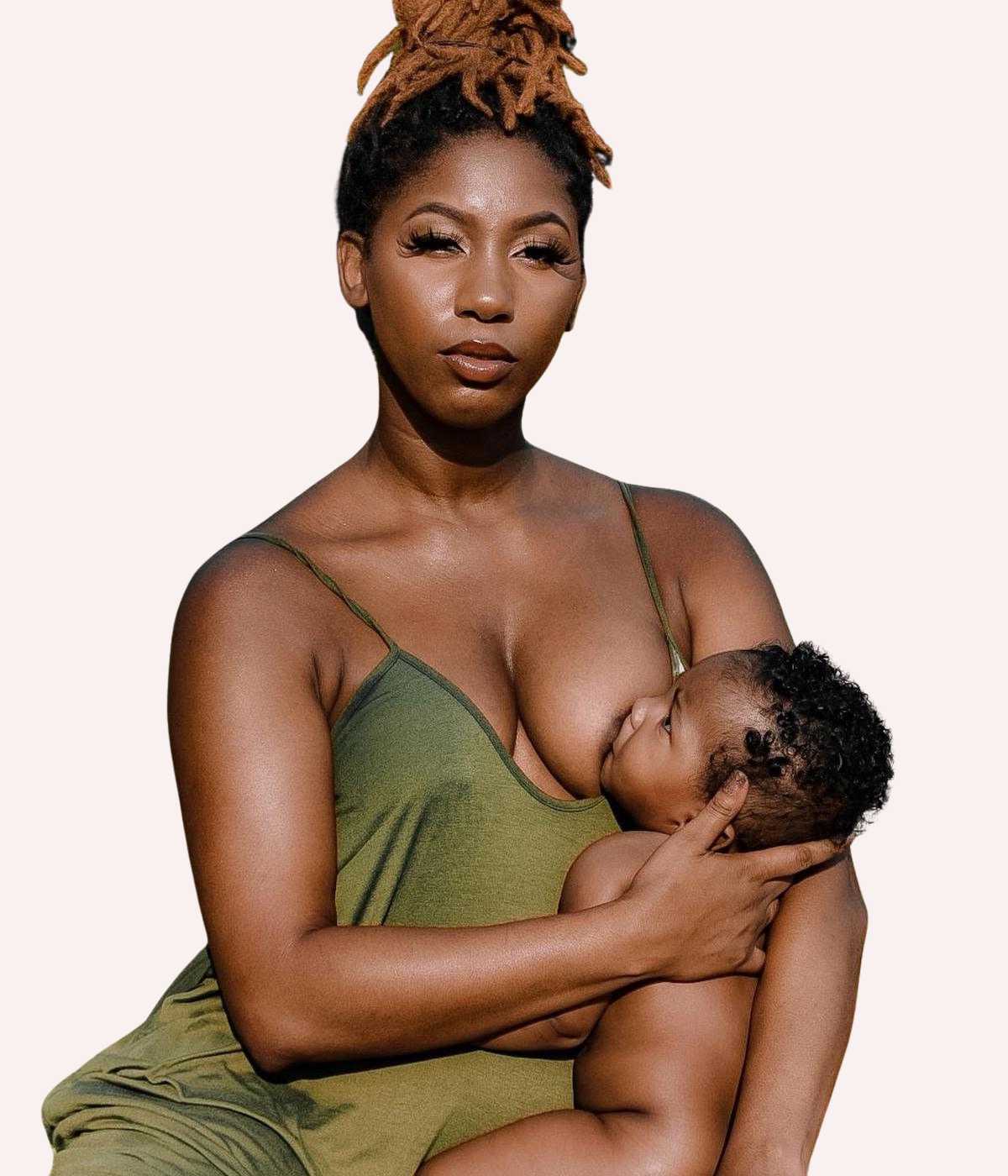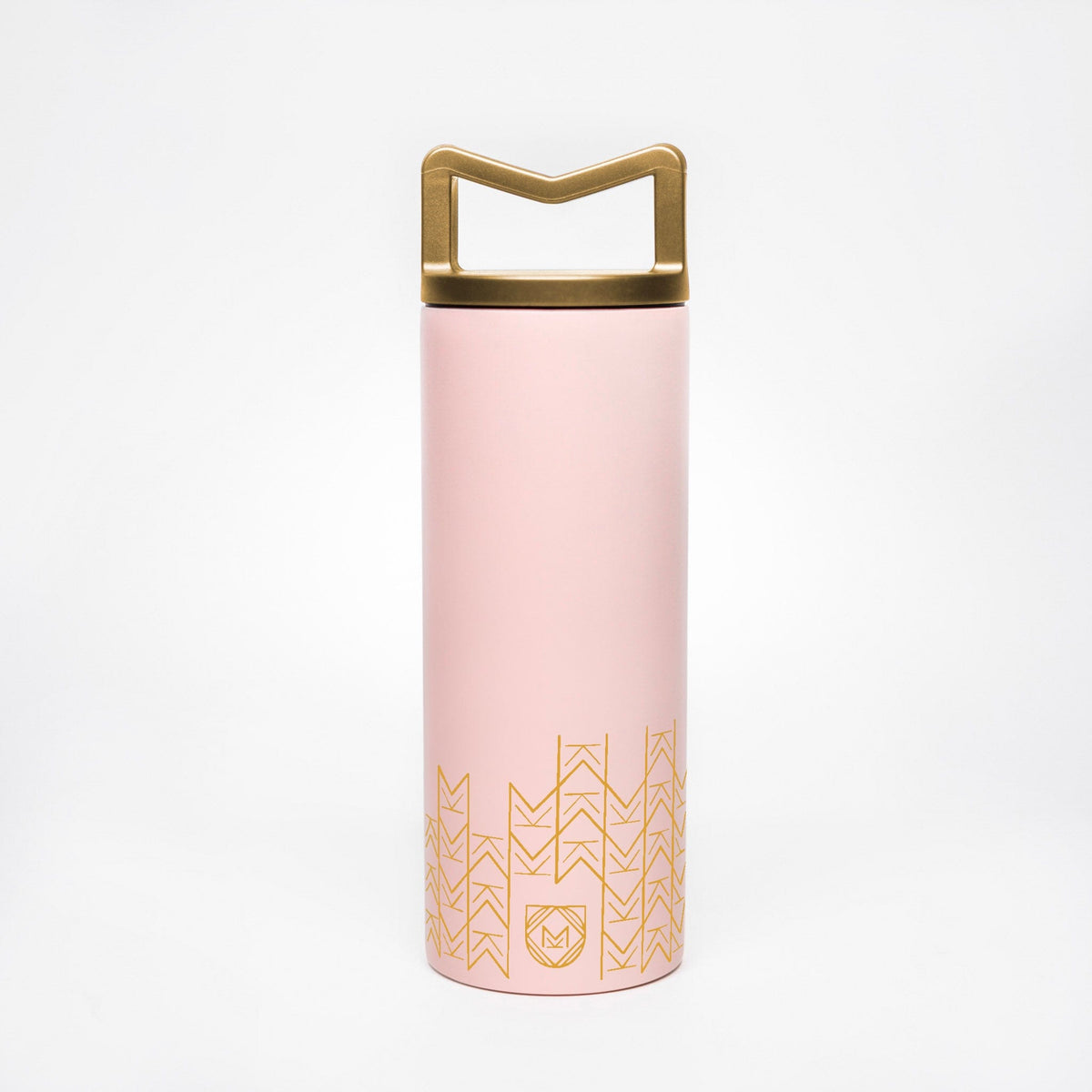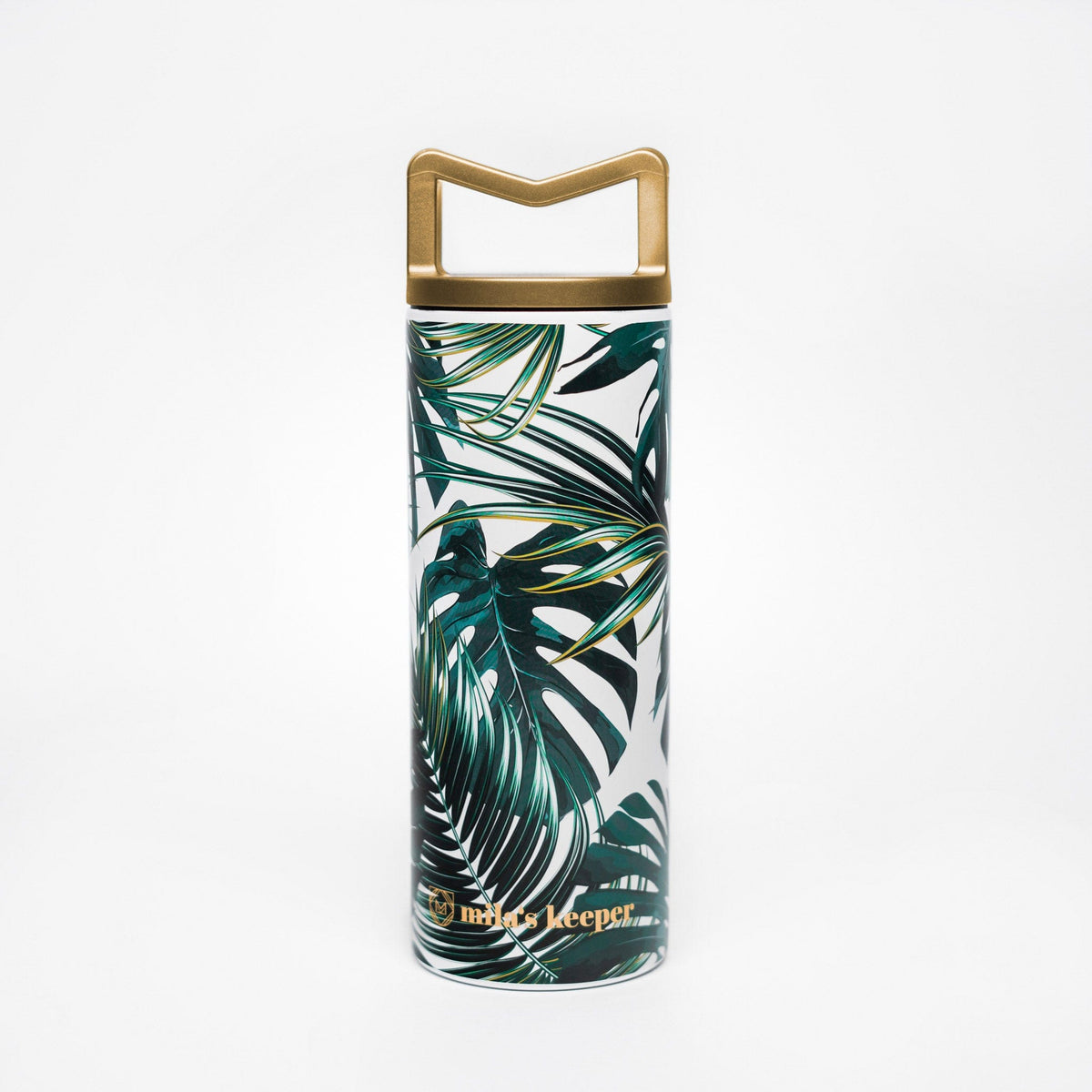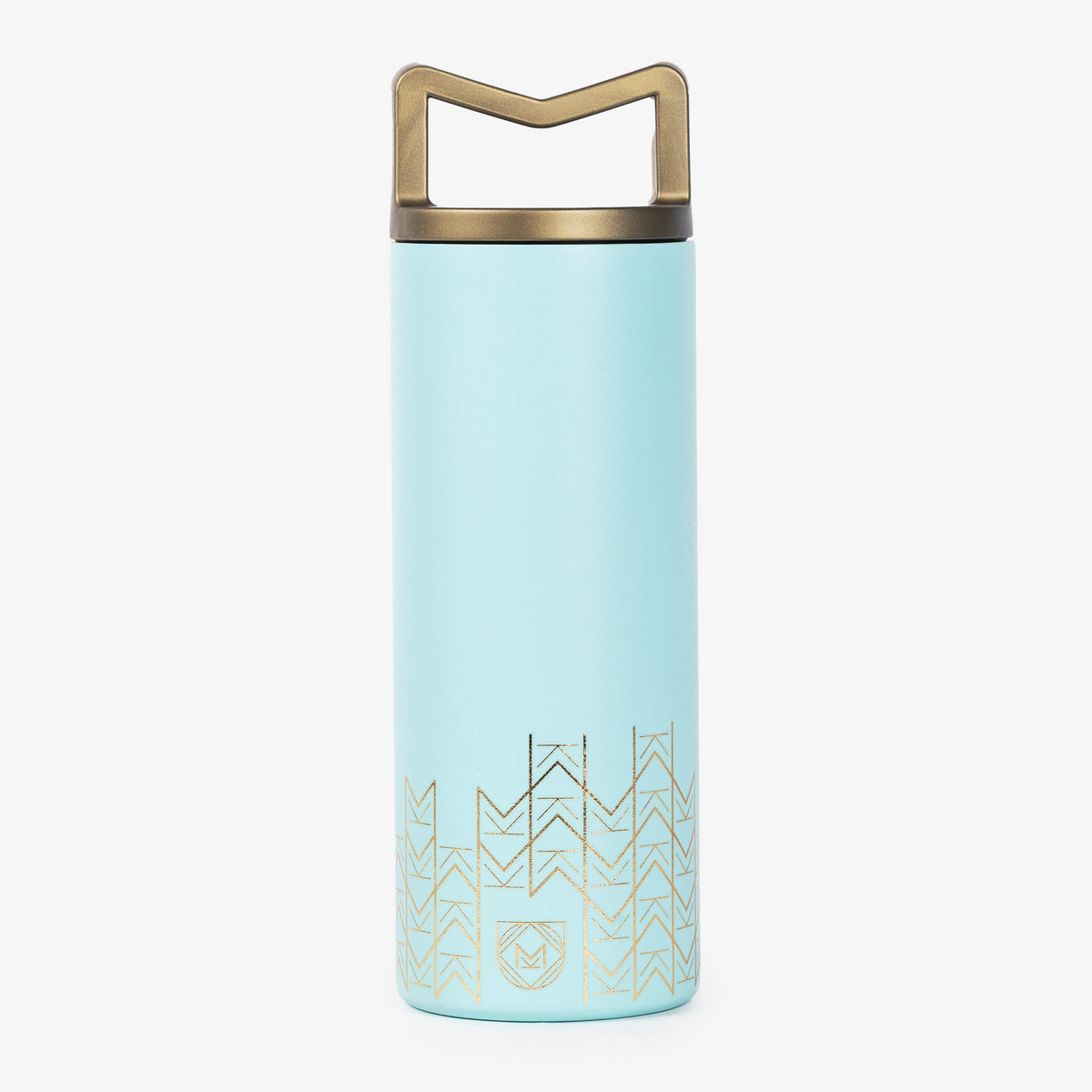If you read our most recent blog post then you know August is National Breastfeeding Month, but have you heard about Black Breastfeeding Week?
It was created to increase awareness of the racial disparities in breastfeeding rates and push for better practices and supportive services in the Black community.
Let's start with these 7 reasons why it's important to lift up Black Breastfeeding Week:
See Related: August Is National Breastfeeding Awareness Month
1. Black Breastfeeding Week aims to keep more Black babies alive and thriving
Bringing a baby into the world is one of the most wonderful, momentous, and moving experiences we are privileged to have. However, along with all that joy, certain challenges and even the most unthinkable of tragedies can occur.
Watching your baby struggle to survive is something no one wants to imagine. Still, it's important to discuss the harsh realities of childbirth and early health outcomes.
It's also critical to observe racial and socioeconomic factors when looking at statistics pertaining to childhood health and infant mortality, so we can address the communities most at risk.
In the United States, non-Hispanic African Americans have 2.3 times the infant mortality rate as non-Hispanic whites.
Let's back up a bit to see what this might have to do with breastfeeding.
Research has found that formula feeding, as opposed to breastfeeding, is associated with higher risks for conditions like type 2 diabetes, asthma, and childhood obesity. Not only are the rates of these illnesses increasing among all racial categories in the U.S., but there tend to be especially high rates among Black children.
Obesity rates are higher among African American children than their caucasian counterparts. These issues often continue on to adulthood. Black people are 40% more likely to have asthma than white people. Black adults are twice as likely to develop type II diabetes.
Of course, correlation does not equal causation, and there are plenty of factors in the picture, but research supports the connection between breastmilk and better health. In virtually all instances, breast milk is the most complete and readily available source of nutrition for a baby, which is what makes finding the best milk storage containers tantamount to your baby's health.
Knowing that breastfeeding a child positively can improve health outcomes, some folks have concentrated their efforts to promote it in underserved communities.
Many individuals and agencies have been at the forefront of encouraging conversation and advocacy around breastfeeding in the Black community. Among those are the women who co-founded Black Breastfeeding Week.
We have Kimberly Seals Allers (Author and creator of the IRTH app), Kiddada Green (Founder/Executive Director of Black Mothers' Breastfeeding Association), and Anayah Sangodele-Ayoka (nurse-midwife and reproductive health strategist) to thank for starting Black Breastfeeding Week, and congratulate them on almost 10 years of remarkable work!
From personal experience and professional observation, each of these women saw a persistent problem. The barriers to breastfeeding and racial disparities in breastfeeding rates were harming black communities.
Together they work tirelessly with a wide variety of breastfeeding champions to center the experiences of Black moms and families.
They advocate and educate with many goals in mind. Among the most urgent of these goals is to decrease the infant mortality rate among Black babies.
In the words of Black Breastfeeding Week Co-Founder, Kimberly Seals Allers, "Black babies are dying at twice the rate (in some places, nearly triple) the rate of white babies." She believes that this is enough of a reason to do the work she does.
According to the CDC, increased breastfeeding among black women could decrease infant mortality rates by as much as 50%.
Breastfeeding is protective against several illnesses, including ear infections, staph and strep, and even certain childhood cancers. A mother's milk contains antibodies that improve the baby's ability to fight off the germs that cause some of these illnesses.
Increasing the ability of a newborn baby to survive and thrive is something that every parent can appreciate, and a primary reason we lift up Black Breastfeeding Week.

2. We need to address historical and cultural barriers to breastfeeding
Women of all colors and cultural backgrounds may have challenges when it comes to breastfeeding. There may be a lack of support from family members, or few lactation-related resources nearby. There are also unique cultural experiences that have shaped feelings and practices for generations.
Our disturbing history of slavery impacted cultural norms and values around breastfeeding in the Black community. The trauma experienced over multiple generations didn't disappear with a pronouncement or proclamation.
Many Black women in slavery were forced to act as wet nurses for the children of their slave owners. This often carried the added torment of not being able to provide sufficient nourishment to their own babies.
Countless stories of tragedy and trauma have had a lasting impact.
After having bodily autonomy ripped away and being forced to breastfeed, it was sometimes seen as an act of resistance to choose not to breastfeed in subsequent generations.
This deep and complex pain has been passed down in narratives and cultural norms that need to be addressed in culturally competent ways. A one-size fits all approach can't quite cut it when it comes to breastfeeding advocacy.
While more children are breastfed now than in recent decades, racial equity has not been achieved.
That's why it's important to heed the Surgeon General’s Call To Action to advocate for breastfeeding and peer-led community engagement.
A dialogue that addresses the needs and experiences of black families could ultimately help with a number of wellness indicators for black infants.
3. Breastfeeding can improve the health outcomes of nursing mothers
Folks often focus on the benefits to the breastfed baby, but the nursing mother also reaps many rewards from this natural process.
We know that the antibodies in human breast milk help protect infants from illnesses. This leads to a decreased likelihood of various ailments, like allergies and even tooth decay.
Interestingly, when you nurse your baby, it's not only beneficial for the little one.
The baby brings germs to you and your body synthesizes antibodies. Some of these germs may be brand new to you, but either way, your immune system works to provide immunities for both you and your baby.
It seems like nature has had a while to work on this system.
When you nurse your baby, your body releases oxytocin, a hormone that's produced by the pituitary gland. It serves many functions, like lowering anxiety and blood pressure. It's a pivotal part of social bonding.
Oxytocin is of particular importance for the postpartum woman, since it triggers contractions of the uterus. While sometimes painful, this kind of cramping helps decrease the amount of postpartum bleeding and enables the uterus to shrink back to the size it was prior to pregnancy.
You can also encourage the release of more oxytocin by cuddling with your baby or massaging the breasts prior to milk expression.
There are other benefits to a mother who breastfeeds her child (or children).
Studies have shown that breastfeeding lowers a woman's risk of getting breast cancer. The length of time also appears to have an impact. Mothers who breastfeed for more than one year reduce their breast cancer risk by 26%.
This is due to several factors.
Lactating mamas tend to avoid alcohol and smoking, and they generally follow healthier guidelines so that their milk is more nutritious. Plus, having the right cooler for breast milk ensures that those nutrients remain preserved. Also, nursing moms shed breast tissue, which can potentially remove cells with DNA damage, reducing the risk of developing breast cancer.
In the U.S., Black women have lower breastfeeding rates and almost twice the rates of a particularly aggressive subtype of breast cancer (when compared with white women). This is yet another reason why a focused approach is appropriate.
In addition to lower rates of breast cancer, there appears to be a decreased risk of developing ovarian cancer, type 2 diabetes, and high blood pressure. These diseases are all less common among women who have breastfed their babies.
Again, there are multiple factors contributing to one's wellness, but the overwhelming consensus from the medical community and those within the specific field of lactation is that breastfeeding is ideal for both the baby and the mom.

Bonus: How Breastfeeding And Breast Milk Production Work
4. Black breastfeeding week highlights how representation matters in many ways
As mentioned above, Black women can face unique cultural barriers in the breastfeeding journey.
In addition to a history wrought with trauma that has impacted generations, women of color may come across other roadblocks. There may be inadequate healthcare interventions, a lack of support from within their communities, or jobs that don't offer any accommodations.
Many Black women have shared their experiences of being the only Black person in the room at in-person or virtual events for nursing moms. If you're already in a vulnerable state, this situation can exacerbate these emotions. Some African American women have also noted that the other women weren't apt to include them in gatherings outside the group setting.
While there may be a whole host of factors playing into these dynamics, the sting is still felt.
Sharing stories and experiences can foster camaraderie and connection, which adds to a sense of belonging. Hearing how others have dealt with similar struggles and succeeded provides hope in a specific way.
Black breastfeeding week is a chance to talk about diversity and representation when it comes to these settings.
Lactation advocacy has largely been a white female-led movement. As well-intentioned as individuals and organizations may be, there's sometimes a lack of cultural competency. This can impact the outcomes we all want to see.
Just as different waves of feminism spoke to certain communities and often excluded the specific needs of others, so it is in the lactation field.
Community advocates or lactation consultants trying to provide support may miss the mark.
The literature created, the messaging put forth, and the connections made will naturally reflect one's own experience. That means if there aren't people of color present - and also taking leadership roles - in these organizations, then they may not be as successful in the communities that are disproportionately impacted.
Lack of representation allows for certain misconceptions (e.g. Black moms don't want to breastfeed) to persist. Those within the community may understand the context and barriers much better than those who haven't dealt with them firsthand.

5. Breastfeeding creates a beautiful bonding opportunity
During breastfeeding awareness month, you may see a lot of literature about this being a great bonding experience. And we're not talking about the bonding experience you'll have with our glass breast milk storage options.
Not only is breast milk the most complete and healthy meal for an infant, but this feeding process can foster an almost magical connection. It rejoins you in a literal and physical way to the one who was just inside your womb. Whoah, right?
It's a mutually beneficial exchange not only for those aforementioned measurable outcomes, but a boon for boundless loving feelings.
Even our brain chemicals kick into high gear and feed this natural cycle. Of course, these emotions are not exclusive to women who feed their children in this manner. Your body also produces oxytocin when you snuggle with your baby, especially with skin-to-skin contact.
Sadly, this unique way of being with your baby is frowned upon in some circles or contexts.
One issue is that of women's bodies being over-sexualized and objectified. When a woman brings out a breast to feed her baby, some folks balk or deem it inappropriate.
This exists to varying extents in many communities, but African American moms mention this issue with some frequency.
That's why it's important to have multi-generational support and community acceptance. Those within the community are aware of some best practices to address these issues.
If family members help with other responsibilities, you may have a quiet moment to feed and give your full focus to your baby. Knowing that your body is providing your little one with the best nutrition available also makes you feel like a bit of a boss.
6. Encourage discussion around broader disparities like healthy food access and formula advertising
There are other social pressures at play that lead to black infants not being breastfed as frequently or for as long as white infants.
Formula companies lobby Washington to support policies that benefit their sales and aggressively market their products, often focusing on poor areas and communities of color.
Black women are more likely to live in food deserts, which means there are fewer accessible grocery stores, and fewer healthy food choices within the markets that exist.
This makes it more of a challenge to stay healthy for the demands of feeding a child from your own body.
Women of lower socio-economic levels are also often required to return to work sooner, so that's one more added stressor.

7. Reclaim this natural connection and celebrate the successes
Fortunately, things are improving in many ways.
Various individuals and Black-led groups have helped reclaim breastfeeding for a population with a complex past and ongoing challenges. People are sharing powerful stories that bring folks together.
Organizations led by Black folks are creating welcoming spaces and inspiring action.
Organizations like Black Mothers Breastfeeding Association, Reaching Our Sisters Everywhere (ROSE), Black Breastfeeding Week and others are addressing disparities and creating models to be emulated in black communities across the country.
So this black breastfeeding week, August 25-31, join in the discussion, support an organization, or reflect on your own breastfeeding journey as you elevate the voices of these advocates.
As they say at BBW, it's just the beginning, so let's lift each other up!
#MilasKeeper celebrates #blackbreastfeedingweek #BBW10Years
Here's some more information on the benefits of breastfeeding:
Keep Reading: Breastfeeding In Asian And Asian American Communities
--
A female-designed and female-run company, Mila's Keeper is on a mission to empower women to thrive during their breastfeeding journey by offering reusable, eco-friendly breast milk storage solutions for their day-to-day needs. Get the latest tips and info on Mila's Keeper products by following us on Facebook, Twitter, Instagram, Pinterest, and LinkedIn.























